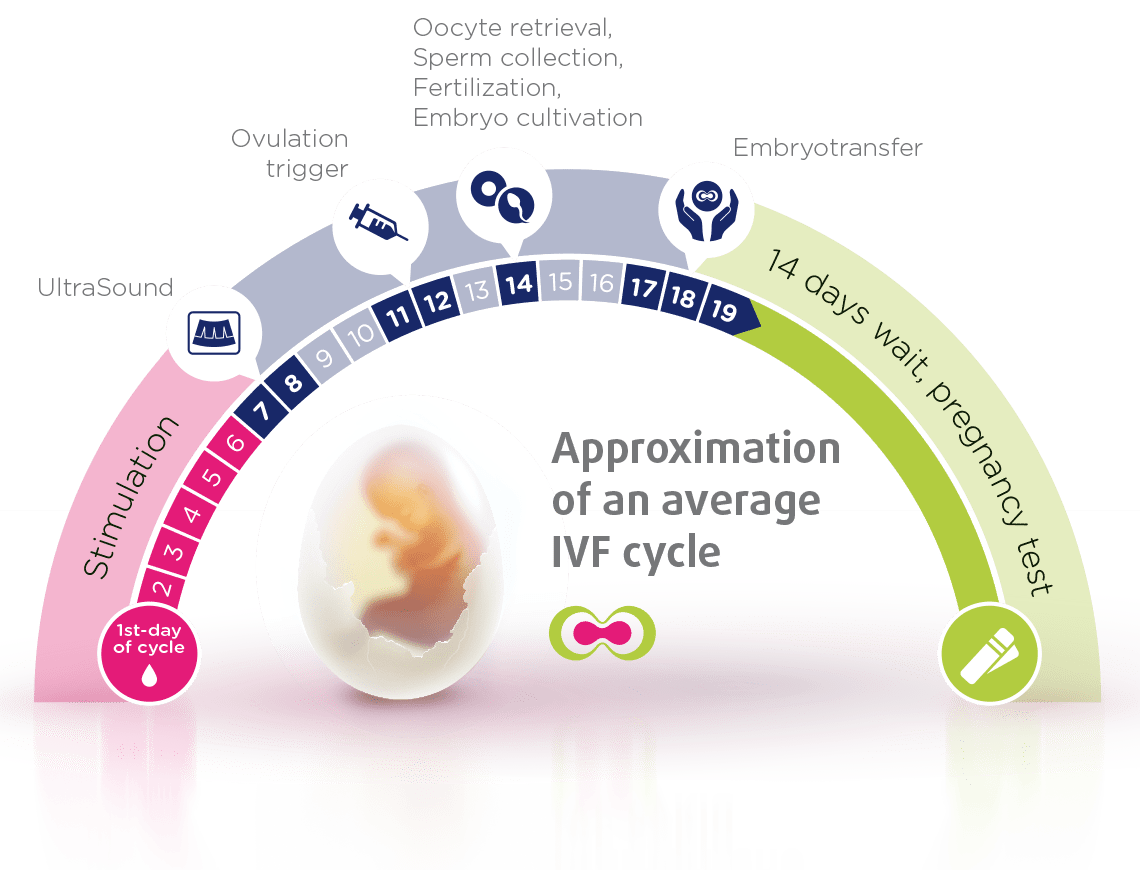IVF LAW AND LEGISLATION IN CZECH REPUBLIC
- IVF treatment available only to couples not individuals
- Women age on the day of embryo transfer may not exceed 48 years + 364 days
- Infertile couple must be of different sexes
- Artificial insemination can not be used for sex selection
- Donation is anonymous
Surrogacy – the clinic is responsible for the treatment itself only; there is no obligation to provide surrogate mothers, nor have any involvement in the relationship between the genetic parents and the surrogate
What Your IVF Journey Looks Like
Fisrt step of Assisted Reproduction begins at the clinic – consultation with an IVF Specialist. Reproductive history and abilities of a couple are analysed in detail. Depending on the analysis, specific methods are recommended and a treatment plan is drafted.
